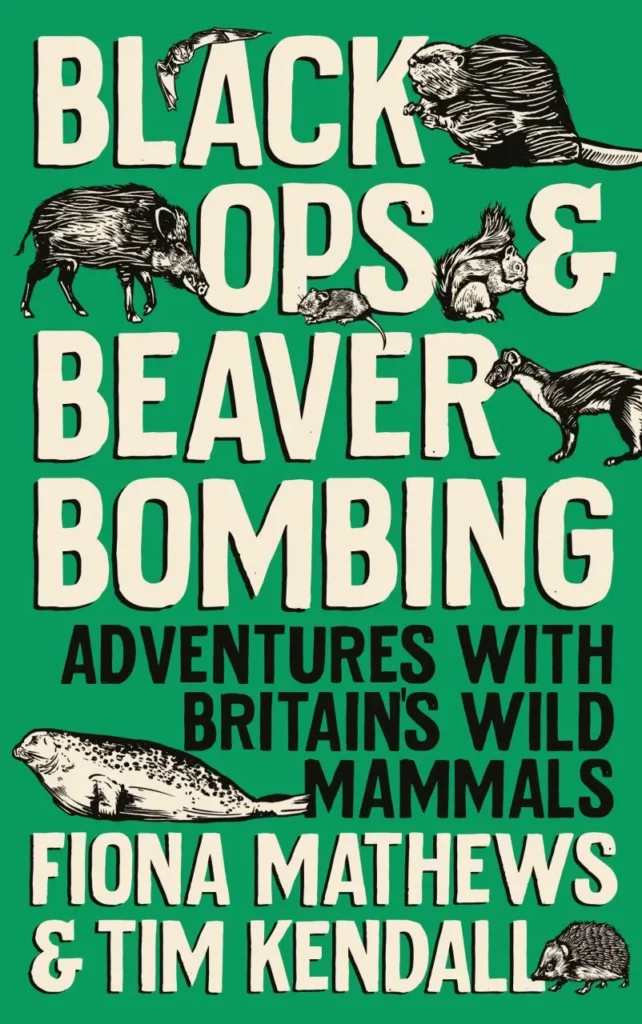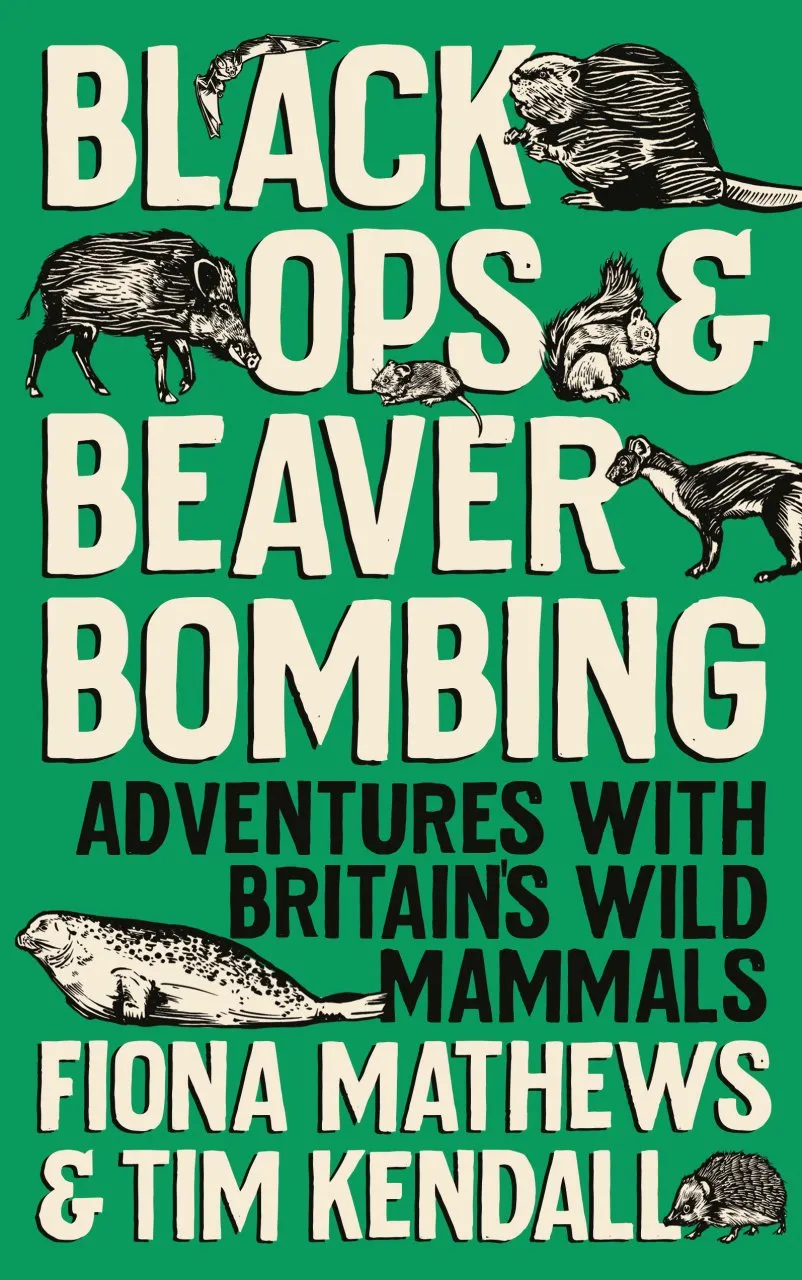Mammals occupy a somewhat unique space in British natural history. Despite being the most popular species group in cultural terms globally, with large charismatic megafauna taking the (pun excused) lion’s share in funding and popular appeal, conservation interest in the UK is dominated more by the birds, butterflies and wildflowers.
Our relatively low species diversity, the fact that many ‘box office’ species were hunted out many years ago (though some are now returning) and, in the case of many species, the fact that they are simply so shy, awkward and difficult to observe in great detail are all reasons why mammals are a little more ‘second row’ in Britain. As a result, the world of British mammalogists is one patrolled by odd sorts prepared to wait long evenings sat still on the chance of a glimpse of something nocturnal, or have their day made by the discovery of some especially curvy faeces or a slightly indeterminate pawprint.
In Black Ops and Beaver Bombing, married duo Fiona Mathews and Tim Kendall revel unashamedly in what it means to be a mammal enthusiast. This is not a simple by-the-numbers summary of our warm-blooded and hairy neighbours. Each chapter brings a rich storytelling dimension to its featured mammal and its place within a very human countryside, something that will make this book an easy recommendation for friends or relatives with a burgeoning interest in nature but for whom a tsunami of scientific jargon would be overwhelming. A trip to seek out each of the animals in question gives an almost Zoo Quest-type serialised adventure flavour, with varying levels of success (as anyone who has attempted similar expeditions will relate to).
As the title suggests, the illegal ‘bombing’ of Beavers into Britain’s waterways, an almost folkloric tale in the vein of ecology meets Robin Hood, is used to set the stage for the complex ways in which our world interweaves with those of our fellow mammals. Wait until you hear about the Pine Marten that aspired to be Christopher Columbus, the curiosities of what people get up to in caves and mine shafts (before even getting on to the Greater Horseshoe Bats that live there, too), or the ethical questions that arise in the psychology of ‘good and bad’ squirrels.
Humour is well used throughout, something we should embrace much more in nature writing when trying to engage with wider audiences. Think about which stories from your career and/or hobby go down best at parties – the unashamedly funny aspects of our lives, especially when we perceive them as normal. The authors have clearly recognised this. Humour is applied not only to their eccentric personal circumstances, such as months spent caretaking 50 Water Voles in a two-up-two-down, but also in breaking down some of the more complex science and the often nonsensical and contradictory political world of nature conservation.
For anyone curious about the strange workings of us mammal nerds, Black Ops and Beaver Bombing is a delightfully accessible and informative read with a personal touch, which does not linger in self-indulgence, as can be a risk in some modern nature writing. Conservation is as much, if not more so, a social science as it is a biological one, and Mathews and Kendall present the complex ways in which these animals merge with our lives and politics in an admirable and effective manner. The enthusiasm throughout should, I hope, leave the reader planning out how to get involved in a small-mammal survey or working out a nocturnal stake-out to watch Beavers.

